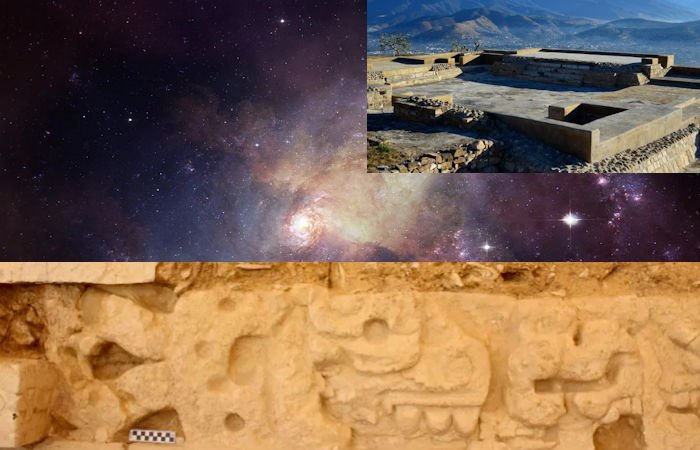Conny Waters – MessageToEagle.com – After many years of hard, dedicated work, scientists have finally deciphered the longest Zapotec text of its kind known to exist in the Oaxaca Valley, Mexico.
According to archaeologists, the length of the best-preserved segment, stucco and limestone frieze, is 15 meters!
Credit: Pixabay – Luminas_Art – Public Domain
The frieze discovered three years ago at the Atzompa archaeological site contains a series of characteristic glyphs of the Zapotec and Mixtec iconography. The structure has glyphs depicting the Mixtec year of the lizard, numerals, personages, and a quetzal, among other elements.
INAH researchers said in a statement that the political, economic, and social power that the Atzompa residential area had within the Zapotec capital of Monte Albán between A.D. 600 and 900 and the crucial relations its inhabitants established with the Mixteca region are some of the details revealed through the iconographic interpretation.
“Almost two thousand years ago, the Zapotec people built the city of Monte Alban at the top of the mountain.
This mysterious city, probably about 3000 years old, stands on a vast artificially flattened hilltop overlooking Oaxaca.
Monte Albán (in Spanish: White Mountain) was the first capital of the Zapotecs, the ‘city of temples’ – the second-largest ceremonial center in Mexico after Teotihuacan.” 1
“The Mixtec people called themselves the Ñuu Savi – “People of the Rain” and lived in three mountainous areas of present-day Oaxaca in Southwestern Mexico.
Their homeland was the Mixteca.
The Mixtec never built large cities similar to Tula or Teotihuacan, but instead lived and worked in smaller settlements in neighboring valleys.
Some of the glyphs have been interpreted at Atzompa. Credit: INAH
Much about the pre-history of these people is unknown but archaeological evidence shows that the culture flourished between 940 and 1500AD. Around 1350 AD, the Mixtecs took over control of the sacred, ceremonial site of Monte Alban, near the present-day city of Oaxaca, from the Zapotecs, who ruled Monte Alban for some about 12 centuries.” 2
The troublesome work of deciphering the Oaxaca Valley’s glyphs has been worth the efforts as the glyphs provide scientists with valuable information about the cultural beliefs of the Zapotecs and Mixtecs.
Supernatural Protection And Cosmic Beliefs
“In general, the glyphs are allusions to power in the city, to supernatural protection, and to a time without time. Due to the location, we know that it is a message or discourse of power, associated with the use-function of the space of this residence. This message could be seen when walking along the street that defines the road between the main Ballcourt of the site and the Ceremonial Plaza A”, explained Nelly Robles García from INAH.
As reported by Mexico News Daily, Robles points out,” the care and additional restoration of the frieze are conservation priorities for INAH. It was partially destroyed by the Zapotec inhabitants when they vacated Atzompa at the end of the ninth century, INAH said.
Monte Alban. Credit: INAH
The researcher also noted interesting carvings on the front of the frieze including figurines of monkeys, jaguars, and the representation of a quincunx, which INAH described as “a symbol that alludes to the four directions and the center of the universe.”
See also: More Archaeology News
The carvings are “manifestations of the cosmic world to which the construction of a house like that obeyed,” INAH said.”
INAH researchers say this architectural ornamentation is an essential manifestation of the cosmogonic vision of the Zapotecs of the Classic period, which referred to the constant relationship between the common population and supernatural forces or elements as well as the search for cosmic explanations of the world.
The archaeological evidence found in Atzompa supports the arguments to speak of this connection.
Written by Conny Waters – MessageToEagle.com – AncientPages.com Staff Writer
Expand for references







